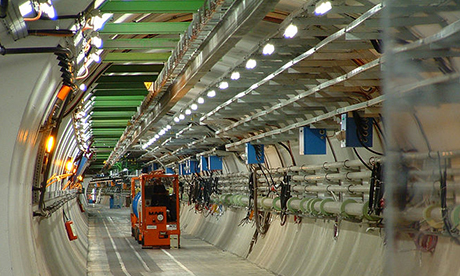
Image: Max Braun [CC BY-SA 2.0] via Wikimedia Commons
Concern scientists who criticised invasion could face prison if they have to move to Russia
Fears have been expressed for the safety of researchers working at Cern who have affiliations with Russian or Belarusian organisations, and who might have to return to those countries following the decision of the lab’s governing council to cut ties with them.
Up to about 200 scientists working at Europe’s organisation for nuclear research will be unable to work there after 2024 unless they find new jobs at institutions outside of Russia and Belarus, Cern told Research Professional News. This is due to the governing council deciding this month that cooperation agreements with those countries will not be renewed after they expire in 2024 because of the invasion of Ukraine—although the decision will be kept under review.
The figure includes researchers working at the Russia-based international Joint Institute for Nuclear Research, whose association agreement with Cern is being reviewed by the council. Unless that agreement is allowed to lapse, none of the JINR researchers will be affected.
Researchers working on Cern experiments fear that some affected colleagues might have to move to Russia due to the decision and face prison sentences or other consequences because they have publicly criticised the invasion.
“For them to be forced to go back to Russia would be extremely difficult for many of them,” said John Ellis, a theoretical physicist from King’s College London who works on Cern experiments.
Cern told Research Professional News that “if the situation does not change”, scientists affiliated with Russian and Belarusian institutes will be unable to continue working at the facility after the cooperation agreements expire.
Of the more than 1,000 scientists affiliated to about 30 academic and scientific institutes in Russia and Belarus who are involved in Cern’s experimental programme, about 200 reside in the area around the facility near Geneva, it said.
Concern among researchers
Although Cern’s director-general, Fabiola Gianotti, said on 20 June that the council’s decision allowed researchers to “plan for their future”, there are worries that some affected researchers might have no choice but to relocate to Russia.
Researchers working at Cern have made statements against the war that have been shared internally in collaborations as well as externally, according to Allen Caldwell, a spokesperson for Cern’s Awake experiment.
“In general, there is of course a concern of what might happen, in particular if they’ve made any kind of statements about the war themselves,” he said.
Under a Russian law adopted in March, people who intentionally distribute “fake” news about the military could receive prison sentences of up to 15 years. Protests and public criticism of the war in Ukraine could also result in imprisonment.
Asked whether Cern was taking or planning any assistance for the affected researchers, a spokesperson for the lab said that researchers affiliated with Russian and Belarusian institutes could “continue their scientific work on current activities until the expiry” of cooperation agreements in December and June 2024 respectively.
They added: “If at that time their institutions are outside Russia and Belarus, they may continue to work at Cern. The Council’s decision applies to the countries and their institutions, not to individuals.”
Caldwell said efforts were underway within Cern to get affected researchers to affiliate with European or other institutes, but Cern declined to comment on this.
“Of course, [that’s] not too easy, so we have to see how this works out,” Caldwell said.
Correction 1/7 – Initially Cern did not state that the figure of roughly 200 researchers included those based at the JINR; this article was updated to reflect its subsequent clarification.